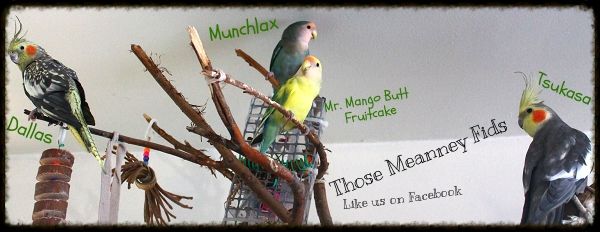Post by Casey on Oct 7, 2011 11:24:14 GMT -8
Well read through this and see if you think you are...
Does your area have a demand for the species you have?
Do you know what a good home is for your birds' babies?
Are your birds properly bonded?
Are you home 90% of the day to catch any early problems?
Will you be home for the whole breeding process from nesting to finding homes for the babies?
Do you have enough space for the parents and babies?
Are your birds on a healthy varied diet?
Are you aware of your species special needs?
Do you know what nesting material to use?
Are your birds old enough to breed safely?
Are your birds genetically compatible?
Do you know if your birds are unrelated?
Do you have enough money to support vet checks, emergencies, or upkeep costs?
Do you have what supplies needed?
Have you researched months ahead of time?
Do you know how to handfeed whether you plan on it or not?
Are you aware that some mutations should not be bred together?
Are you aware of the health problems that could arise in your parents and chicks?
Do you know how many clutches a year are healthy for your species?
Are you prepared for a double clutch as they are nearly impossible to prevent?
Do you know how to lower your birds' hormones?
Do you want to breed just because you want babies?
Do you want to breed for money?
Do you care about what happens to the babies you find homes for?
Are your birds healthy?
Do your birds have any special handicaps?
There's a lot to think about with breeding. It's not all about fluffy little babies or money. If you are out to breed just because you want babies or because you want money, do not breed. Those are not good reasons to breed.
If you do not have time to be home to monitor problems, you compromise the birds' health. You risk losing eggs and babies because you weren't home when something needed prevention.
If your parents are not on a healthy varied diet, you are setting them and their babies up for malnourishment. The parents use up much of their nourishment to feed their young.
Some mutations if bred together can pose health risks and fatalities and should be avoided.
Please do your research about breeding. It's not as easy as you think.
Does your area have a demand for the species you have?
Do you know what a good home is for your birds' babies?
Are your birds properly bonded?
Are you home 90% of the day to catch any early problems?
Will you be home for the whole breeding process from nesting to finding homes for the babies?
Do you have enough space for the parents and babies?
Are your birds on a healthy varied diet?
Are you aware of your species special needs?
Do you know what nesting material to use?
Are your birds old enough to breed safely?
Are your birds genetically compatible?
Do you know if your birds are unrelated?
Do you have enough money to support vet checks, emergencies, or upkeep costs?
Do you have what supplies needed?
Have you researched months ahead of time?
Do you know how to handfeed whether you plan on it or not?
Are you aware that some mutations should not be bred together?
Are you aware of the health problems that could arise in your parents and chicks?
Do you know how many clutches a year are healthy for your species?
Are you prepared for a double clutch as they are nearly impossible to prevent?
Do you know how to lower your birds' hormones?
Do you want to breed just because you want babies?
Do you want to breed for money?
Do you care about what happens to the babies you find homes for?
Are your birds healthy?
Do your birds have any special handicaps?
There's a lot to think about with breeding. It's not all about fluffy little babies or money. If you are out to breed just because you want babies or because you want money, do not breed. Those are not good reasons to breed.
If you do not have time to be home to monitor problems, you compromise the birds' health. You risk losing eggs and babies because you weren't home when something needed prevention.
If your parents are not on a healthy varied diet, you are setting them and their babies up for malnourishment. The parents use up much of their nourishment to feed their young.
Some mutations if bred together can pose health risks and fatalities and should be avoided.
Please do your research about breeding. It's not as easy as you think.



